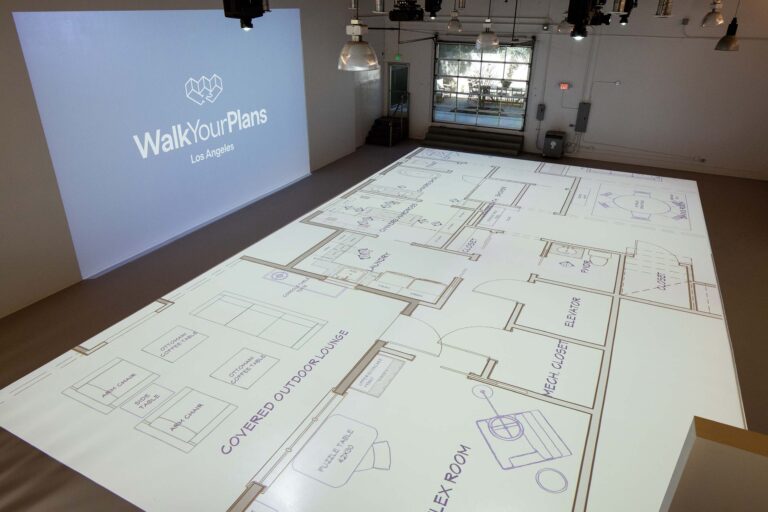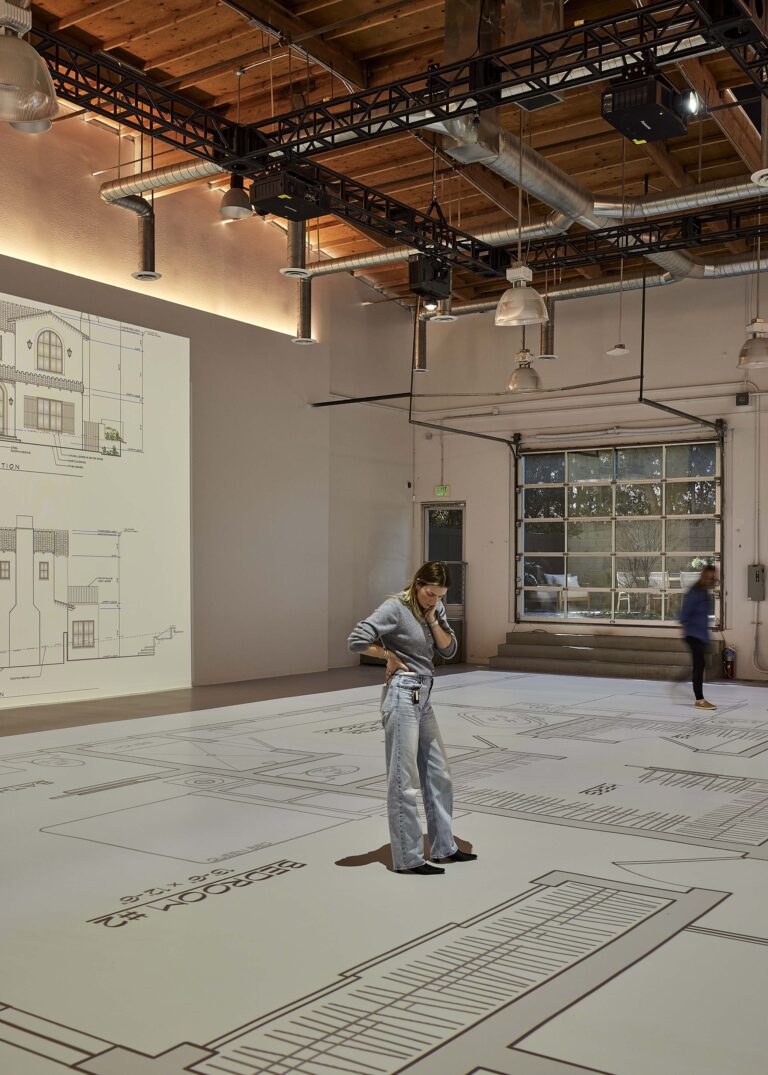Table of Contents
In this Episode
Sally Forster Jones‘ humble beginnings and work ethic are foundational to her purpose-driven life and her success in real estate is truly remarkable as she consistently sells over $300M per year as a top-ranked agent in the U.S. DIGS takes a look behind the curtain to see what makes Sally Forster Jones of Compass one of the most preeminent realtors in the world.
Top Quotes
“I grew up in a lower middle class family in Brooklyn, New York, and my parents were immigrants and so they were finding their way in New York and in life and a whole new experience because as you said, they were Holocaust survivors, and they had gone through some terrible times and this was a new life for them. And so, here I was growing up with that as the just my, my family experience and just, you know, a lot of responsibility with that because. When you have parents who have gone through a lot, you want to try and be everything that you possibly can to make it sort of worthwhile for them to have put in all that effort to just, you know, fight and survive and move forward.”
Tweet
“I had to figure it out. I had to figure it out on my own. How do I succeed? What do I do to succeed? What is really interesting to me? What do I want? What is my life going to be like? And you never really know, but, but it was really my responsibility to fight and do and make it, you know, just make my own direction.”
Tweet
“…This was not my first sale representing Candy Spelling. It was actually the sixth so there was a lead up to it. So I did have a track record. I did have an introduction to Candy Spelling by through another source. Just someone who connected me with her. And then with that, there were other properties that I did representers. So after that, that was really the lead up to getting such a monumental and impressive property”
Tweet
Episode Resources
Follow Sally Forster Jones
Follow Sally Forster Jones on her YouTube channel
Full Episode Transcript
Sally Forster Jones: No one gave anything to me. It was really up to me. So just going to school, just doing the best I could in school. Everything was really just my responsibility and I think it’s really made me into, just a much more productive person. I had to figure out on my own, how do I succeed? What do I do to succeed?
What is really interesting to me? What do I want? What’s my life going to be like? You never really know, but it was really my responsibility to fight and do and make it. Make my own direction.
Warren Dow: [00:00:46] Welcome to DIGS Influencer Podcast: The Titans of Real Estate, the show that provides direct access to the real estate industry’s top movers and shakers as they share invaluable insight on how to best navigate and succeed in any market. I’m your host, Warren Dow, Founder and CEO of m3 Media and Publisher of DIGS Magazine.
Sally Forster Jones may be a household name in the real estate industry where she continues to set records as one of the top agents in the U S with over 6 billion in lifetime sales, but it’s not her performance as an agent that makes her remarkable. It’s the journey she’s taken and how she’s got there, and the purpose that drives her is stay on top.
It’s a great American success story and one that I know you’ll enjoy.
So let’s start from the beginning. Sally, your life’s journey is inspiring, uplifting, and empowering. To begin, your parents were Polish Holocaust survivors and immigrated to the United States from Germany. What was your childhood like growing up?
Sally Forster Jones: [00:01:54] I grew up in a lower-middle-class family in Brooklyn, New York, and my parents were immigrants and so they were finding their way in New York and in life and a whole new experience because as you said, they were Holocaust survivors, and they had gone through some terrible times and this was a new life for them. And so, here I was growing up with that as the just my, my family experience and just, you know, a lot of responsibility with that because. When you have parents who have gone through a lot, you want to try and be everything that you possibly can to make it sort of worthwhile for them to have put in all that effort to just, you know, fight and survive and move forward.
And so that was a lot of responsibility for me.
Warren Dow: And I read you were 12 years old when you actually went out for the first time and ate at a restaurant?
Sally Forster Jones: [00:02:50] Yes. That’s actually, that is the truth. Again, it was a lower-middle-class family, and so we didn’t go out to eat. My mom cooked, and so I had a girlfriend of mine and her family who took me out for Chinese food, and that was like a major experience.
So that was my first restaurant experience and that was at 12, wow.
Warren Dow: [00:03:09] Do you have sisters or brothers?
Sally Forster Jones: [00:03:11] I have a brother and I have a younger brother.
Warren Dow: [00:03:14] So it’s truly incredible just skipping to where we are today, what you’ve accomplished, which we’re going to get to in a bit. But you know, coming from those very, very humble beginnings.
But I think in a way that’s sort of really in your DNA and why you’ve become so successful, right? I don’t think you’ve taken anything for granted. And you understand, you know, what you put in is what you get out, right?
Sally Forster Jones: [00:03:36] Yes. So I was, it was not a privileged environment. No one gave anything to me. So, I mean, my parents tried, but it was really up to me.
So just going to school, just doing the best I could in school, everything was really just my responsibility. And I think it’s really made me into… you know, just a much more productive person. I had to figure it out. I had to figure it out on my own. How do I succeed? What do I do to succeed? What is really interesting to me? What do I want? What is my life going to be like? And you never really know, but, but it was really my responsibility to fight and do and make it, you know, just make my own direction.
Warren Dow: [00:04:14] Carve your own way. Yeah. What’s your parents do for work?
Sally Forster Jones: [00:04:17] My dad worked actually as a first and a factory. In a garment factory, and then he was a tailor.
So it was in the garment industry, but it wasn’t one of the owners. He was really just a, you know, he worked there. And then after that, you know, there were other things that he did, but that was really the start of my mom was a homemaker. So, she took care of the family, but she also worked part-time in a bakery.
So they were both hardworking people trying to make enough money to support a family, earn a living, make.
Warren Dow: [00:04:50] Yeah, absolutely. So when you were young, did you have any early aspirations of what you wanted to be when you grew up? Did you dream about being a great success in X, Y, or Z, or what were your thoughts as a youth?
Sally Forster Jones: [00:05:05] Yeah, I’m trying to really remember. I don’t know that I had, I didn’t have the life experiences to really, you know, think of like, okay, what am I, what do I really want to do? And so the expectation at that time was, okay, you know, what do girls do? Maybe you could be a teacher, you know, maybe you could go along just what I was familiar with.
And so no real great expectations. The going to college was an opening experience because. Just a mind-opening experience because it really just looked at like, okay, you know what is really interesting to me? Not that I really knew, but I was a major in psychology, so people and psychology was interesting to me, and it was really mainly about people.
So that’s, that was my first inkling of, you know, what am I going to do when I grow up? And where’d you go to college? I went to Brooklyn College, which is part of the city, University of New York.
Warren Dow: [00:05:58] So another interesting sort of fact that. The psychology component of your profession today is hugely important, right?
I mean, the emotional stress and just the weight of, you know, buying and selling multimillion-dollar property. It’s the largest financial transaction for most of us right. Yeah. So being able to navigate the psychology of it is, is humongous.
Sally Forster Jones: [00:06:20] Absolutely. It is. I use psychology every single day, every pretty much every minute of the day.
And so graduating with a degree in psychology, there’s really nothing you can do. You know, you have to either get a Ph.D. or, or, you know, really it’s not, it doesn’t really prepare you for anything, but it does prepare you for life. And it does prepare, you know, prepared me for what I’m doing in real estate, which was every.
You know, there’s every minute of every day I am thinking and feeling and relating to people and what their emotions are and what their aspirations are and what they know and what they don’t know, what they think they want and, and what’s behind all of the things that they say that they think that they want.
Warren Dow: [00:07:02] So for fun, the next time a stranger asks you what you do for a living, tell them you’re a psychologist who sells real estate.
Sally Forster Jones: [00:07:09] Yes. That’s perfect. That’s actually perfect because that’s really the truth.
Warren Dow: [00:07:14] That’s great. How did you get into real estate? Let’s jump into how we get here? How do we start?
Sally Forster Jones: [00:07:19] Okay, so I graduated college and I was living in New York and came out to Los Angeles just because it was sunny that day and it looked like a great idea, but really not prepared for anything.
So I started out as a teacher. And second-grade teacher and then after that, it just, I didn’t really connect with that particularly. I mean, I liked it, but it wasn’t really just getting me where I wanted to be. And so I had, I was married, I had bought my first home with, I had no money cause, you know, I was young and you know, bought my first home with my ex-husband.
With virtually nothing down because I had my parents loaned, loaned us some of the money for the initial down payment I had to seller carry back and then, so no money down cause we didn’t have any but did a little fix-up and two years later sold it for a huge profit in my mind. So, and I said, Oh my goodness, this is brilliant real estate.
You know you can, you can buy something, you make money, you can live in it, you can all of these things. And so that was really the start of my career and saying, okay, that was my first, first introduction to real estate and went on from there.
Warren Dow: [00:08:36] And you saw the power of just what you said was, was very eloquent in that stocks you can’t use, there’s no utility value.
In terms of your daily life, you know, real estate, you can live there. You can, you know, which is another, it’s awesome. So tell me about your first sale. I’m always curious. Um, you know, first sales. Do you remember what that was?
Sally Forster Jones: [00:08:57] Well, the first sale here was, it was mine’s going to be different than many other people because I just, I took the limited amount of money that I made from the, from the sale of my first little house.
That was my residence. And I. But, I bought another property to live in with as little down as possible and took the rest of the proceeds that I had. And I said, okay, I’m going to buy as many homes as I possibly can and to the same formula. So I sort of thank, got my real estate licenses. So I was my first customer, so just with the power of real estate.
So I was. Just that was, that was the start. And then I had friends who said, Oh my goodness, this is, this looks cool.
Warren Dow: [00:09:43] Yes, yes,
Sally Forster Jones: [00:09:43] yes. So I just, then I started selling real estate for them. So it was a little bit of a different twist than most people who start real estate.
Warren Dow: [00:09:53] It’s very interesting and powerful because.
You do it for yourself first, figure it out, make the mistakes and learn and, and, and also learn the power of it and the benefit and the value. That’s cool. You’ve had a lot of sales in your career, which we’re going to get into some of your accolades in a bit. What’s your favorite sale? Do you have a favorite, like, I just remember this one.
Particular sale that you know has stayed with me for X, Y, or Z? Is there any, any favorite?
Sally Forster Jones: [00:10:19] Well, there are a lot of sales that are, you know, I mean, every sale is different because it, again, it’s about the people and just making something happen. Having someone really a home is, is huge. And, and, and a purchase of a property is really huge.
And it’s one of the most important and emotional things that happen in someone’s life. But, so there’s, every one of them is, is different. And I can’t say that, you know, I mean, I have lots of them that stick out in my mind, but the one that. Was a key turning point for me was when I sold representative soul, the spelling Manor.
So that was a huge property, and that was a big accomplishment. At the time, it was the most expensive property in the entire world. And I put that up for sale for $150 million. And that was an insane number. And it was clearly, it was the most expensive listed property in the world. And so that was, you know, an everything that went along with that.
Just the outreach and coming up with a marketing strategy and how am I going to ever sell this and who would ever buy this? And who is the audience and how do I reach them? And all of that. So that was when it was favored, you know, cause it really, it taught me so much. And it was instrumental in a lot of the things I did after that.
Warren Dow: [00:11:40] It was groundbreaking in many ways, starting with the price and the whole everything. Let me ask you a question like how does one get a listing? They Spelling Manor listing? How, like how does. How did that come about?
Sally Forster Jones: [00:11:53] Well, that came about. I mean, this was not my first sale representing Candy Spelling. It was actually the sixth so there was a lead up to it, so it really would go with like,
Warren Dow: [00:12:09] okay, how do I, how do you even start to get that down that road, a track record?
Sally Forster Jones: [00:12:11] That was years in development.
Warren Dow: Yeah.
Sally Forster Jones: So I did have a track record. I did have an introduction to Candy Spelling by through another source. Just someone who connected me with her. And then with that, there were other properties that I did representers. So after that, that was really the lead up to getting such a monumental and impressive property to represent and
Warren Dow: [00:12:38] how do you, how does, I mean the price, you know, a Warren buffet has one of my favorite quotes. Like what is his prices? What you pay value is what you get like, and with the spelling, you know, manner. Like how do you arrive at a final, okay, let’s go to market with this price because there’s no comps, there’s no prior sale.
There’s no there. It’s just like, it’s such an extraordinary, unique, exceptional, you know, a state. How do you arrive at, how do you, is it, was it difficult to arrive at a price or is it more of a gut feeling or,
Sally Forster Jones: [00:13:08] it was really a marketing strategy. So came with a marketing strategy. So the property is unique, a fantastic property.
It’s an amazing location. The grounds are, you know, five acres of land and home B Hills.
Warren Dow: [00:13:23] Really repeated, right.
Sally Forster Jones: [00:13:25] Can never, right. So just to get that is, is really unique. And the house itself was 56,000 square feet, and then another 17,000 square feet of finished addicts space. So it was like over 70,000 square feet of living space in, in one structure.
So, yeah. And beautiful. So very, very impressive. But. It is the strategy here is was, you know, how, what are we going to do to sell this property? What is the thought? How, you know, how am I going to, you know, get it out there. And the $150 million price tag was really, part of it was we wanted to make it the most expensive property in the world.
Yeah. So from a marketing strategy with very unique, very special looking for a billionaire, and how do we do that?
Warren Dow: [00:14:17] And yeah, putting it so you know it, it’s a must sort of, it’s so exclusive. It’s the most expensive, most this, most that. And there’s, it’s scarcity, right? There’s only one, there’s only one of them
Sally Forster Jones: [00:14:29] in the world.
Exactly. And if you know, you don’t buy this one, that’s it. There’s no more, you know, and so, and that’s the fact of making something unique and making it special. And that was the whole plan.
Warren Dow: [00:14:41] Have you heard of the $70 cup of coffee.
Sally Forster Jones: [00:14:44] Have you heard of?
Warren Dow: [00:14:46] So, it was a local coffee chain, Klatch.
They bought some premium bean or something, and I’m probably getting this story totally wrong, but, but the bottom line is they came out with the world’s most expensive cup of coffee, 70 bucks and you know, part PR gimmick, part marketing, sort of genius. And. People were buying it because it was the world’s most expensive cup of coffee.
Just for the experience, whether it was good or not. This is not the point.
Sally Forster Jones: [00:15:16] Why, is it good?
Warren Dow: [00:15:19] Any fans who have tried that $70 a cup of coffee? Please comment, send your reviews. When did you sell like your first big home? Like, let’s call it over 10 million. Like what was that?
You know, when you hit a plateau of like, Oh my gosh, this home was over 10. Like, what was that first home like, or first,
Sally Forster Jones: [00:15:38] I’m trying to remember. There was $10 million is a lot of money, right? That’s, you know, here in Los Angeles. We look at that and say, I mean, okay, it’s luxury. You know, when I, I mean, luxury used to be $1 million, million dollars is still, that’s a lot of money.
Warren Dow: [00:15:58] All of these are a lot of money, but you know what’s sad though? Not sad. What’s, it’s crazy, not sad. 10 million really in this market and Beverly Hills in West LA is not a lot of money. Like there’s probably seven 80 listings or a hundred homes for sale over 10 million right now.
Sally Forster Jones: [00:16:16] There are, there are more than that. There are more than that, but it’s just a lot of money and, and it’s hard for people to relate really anywhere else in the, in the country to what we’re talking about here in prices. And we have a, you know, 10 million I have, I mean, I have three listings that are over a hundred million. That is just mind-boggling.
Warren Dow: [00:16:42] How many people on earth can realistically afford that? What does the market look like for that fire was billionaires.
Sally Forster Jones: [00:16:50] There is somewhere in the range of about 2000 billionaires that would be candidates for the property. For a property that’s $100 million more, and then so. They’re out there in the entire world.
Then they have to want to come and buy a property here in Los Angeles. Then they have to like the property that they’re buying and they have to, you know, be motivated to do it. So it really narrows down that list of candidates to really very small number
Warren Dow: [00:17:25] 3000 gets down to. 30 or 18 or something. Right?
Sally Forster Jones: [00:17:29] Yes. So, so I, so there is a target. And so I, I, you know, so in looking at, you know, really when you look at any of these properties, it’s really for any property, no matter what size of the property. Who is the buyer, who’s our target buyer, whether it’s a, you know, is it a family, is it, you know, in any price range.
And then how do you reach them? And so when you get to the luxury and the super luxury, the number. It goes down and what they’re looking for is specific, and then it’s how do you, how do you reach those? And this is what
Warren Dow: [00:18:00] this is what I think makes you so special, Sally, is that if you’re dealing with that type of listing, super luxury, 150 million, 75 million, you’ve got to go with people like yourself.
And there’s only a few of them really that, that it’s not that people aren’t capable, but. It’s your experience and your networking and the. You’ve worked with those 3000 or 2000 billionaires, you know them. They’re in your Rolodex, they’re, you know, they’re, you can text a lot of them kind of thing. You know what I mean?
That’s invaluable to a seller because it, it could take a lifetime to even build a fraction of that, of that group as, as a group that you can communicate with. On a regular basis.
Sally Forster Jones: [00:18:46] Right, right. And some of that exactly as you say, is quite ability and connection and being able to have that outreach. But it’s still a lot of work.
It’s none of this. None of this happens by itself.
Warren Dow: [00:18:59] You talk about psychology, right? Psychology of billionaires, you know, buying a $100 million homes is probably on a whole, whole new level altogether. Right?
Sally Forster Jones: [00:19:07] Very different. That’s a big difference because they don’t have to buy it. They don’t ha, you know, everyone’s lives.
You know, the thing about real estate is that everyone pretty much can identify with real estate because they either live in a home, they live in an apartment, they live somewhere, and or they grew up living somewhere and they can identify with that. But when it comes to, you know, someone who’s buying an ultra-luxury property and it is their second or third or fourth or fifth residence.
They don’t have to buy it. It is much more of a discretionary buy. And so it is motivating them to buy it and, and you know, getting them at the right time. And when, when you lose them, they’re gone. When they’ve lost interest, it’s over. So it’s very, from a psychology point of view, very different,
Warren Dow: [00:20:00] Oh, I can only man’s way.
It’s way harder. It’s almost like the you have to position it as like, this is, this will fulfill something in their life that they’re missing. It’s not a property per se, you know, like you said, they don’t need it. They don’t need this. It’s finding the psychology where they, it’s, they’re finding a piece of them by owning this property.
Sally Forster Jones: [00:20:22] Yeah, it’s, it’s really lifestyle and experience and what are they going to feel like? What is it going to feel like to live in this house and enjoy it? And what are the experiences and the emotional aspects and painting that picture? And that’s, that’s really what resonates. They don’t have to buy it. And it is, and it’s, you’re only going to buy it if you want it.
And you’re only going to want it if you are imagining or picturing what you are going to be experiencing, living and doing and, and, and your lifestyle.
Warren Dow: [00:20:56] Well stated. What do you think? I mean, we talked a lot about psychology and how important it is, you know, for representing homes that are over $50 million.
Like what do agents need to have special attributes? I mean, beyond psychology, the psychology aspect of, of it. To be able to just navigate at that level because it’s such a different market. Is there anything that you could say, Oh, you know, agents need to possess this kind of a skill set or knowledge if you’re going to deal with this high end
Sally Forster Jones: [00:21:28] this is very rarefied.
There is, you know, when you’re going, you know this luxury, there’s like a million, there’s 5 million, and so it’s luxury, 10 million, all of these 10 millions, luxury 20 we have all these breakpoints. Again, there’s only. A handful of properties that sell at these price points. So, you know, we’ve had in, in 2019 this year, we’ve only had, I think it’s six properties that have sold that in our marketplace here in the greater Los Angeles area that have sold for over, you know, for over $40 million.
So there’s not, you know, there’s not a lot of sales. And so the brokers or the agents that are. Working these types of luxury properties and one is you have to, there is a psychology for talked about, but you have to be motivated. You have to work, you have to be innovative. You have to feel good about doing an outreach because it’s not necessarily going to be just coming to you.
You have to work at finding that buyer and connecting and. Thinking about you know, on a continual basis what, you know, what is the property like, what is unique about what’s special? How am I going to find that buyer? And constantly, you know, looking at that, because that’s,
Warren Dow: [00:22:47] you have to create the name.
Sally Forster Jones: [00:22:48] You have to create the need. That’s exactly well said and right on,
Warren Dow: [00:22:53] all right. You know, I know that Sally. I used to sell life insurance as a 22-year-old, sold it for three years, and they got the best sales experience in my life. And you can just imagine a 22-year-old, you know, kid trying to sell life insurance to you know, people much older.
It was quite an experience, but it was selling the need. And here we’re creating that need.
Warren Dow: [00:23:16] It’s awesome. So I have a question that’s. Just arose on this, like with the economy in different real estate cycles. When you get to the Uber luxury 50 million, the buyers of that, are they sensitive? Are they looking for a deal and like, Oh gosh, the market just crashed.
Like, good. I want to go pick up my trophy. $70 million state for 50 instead of 70 are they, did they think that way? Or it’s not even doesn’t enter the equation like there’s no, Oh, now’s the time to get in. You know, because the market’s crashing, I can really go get that monster deal and save 10 million or is it, that’s really not part of the equation, just to know.
Sally Forster Jones: [00:23:54] Okay, so they did not make all the money that they have. By not being cognizant of what’s going on in the market and looking at money and, and the value of money. So the value of money is important. So they really, it’s more of, they don’t want to do something that’s foolish as opposed to. Maybe making the, you know, the best deal cause it’s still a residence.
It’s not a company. It’s not a business. It’s not, you know, it’s not income producing. It is still going to be primarily for their enjoyment. So it’s more of they don’t want to look foolish and make a bad decision as opposed to getting the best possible deal. So it’s a little twist on what most people in a different economic bracket would be looking at.
Makes sense. They don’t want to be fooled if they want to make a, you know, they want to feel like they’re doing something that’s prudent. Right. But it’s still on a discretionary. It’s discretionary.
Warren Dow: [00:24:57] Yup. Which is a big, underlying bold. It’s still, it’s a discretion, discretion, our world at that level. You know what I mean?
Sally Forster Jones: [00:25:04] Yeah. And they, they’re buying it because they want it.
Warren Dow: [00:25:07] Who’s been the biggest. Influence in your career thus far? Like when you were coming up, you know, I know you started doing your own thing, but when you started dealing with other people and growing your real estate business, um, was there anyone in, in any other agents or brokers or owners or people that had a big influence or just anyone in general that was like, you know.
Propelled you or made you think bigger or, or expand your sort of worldview on, you know, what’s possible?
Sally Forster Jones: [00:25:36] I can’t point to one person. There are people who have clearly been influenced very, you know, critical influences in what I’ve been doing here and just growing and, and my need, I’m going to say just my desire and some of it is really need to keep going.
Cause that’s, it’s, you know, I have to analyze why. Why do I do what I’m doing? But one of the is, is really my, you know, my mother, and just as a role model and a . You know, being positive. I’m a very positive person. So I look at it and, you know, I, I don’t take a lot of the I look at things as challenges and I’m, I don’t let the negative really weigh me down that I got really from my mom.
And that’s, you know, critical thing. So there’s a, you know, just achieving and growing and doing, and it’s. You know, there, there are failures all the time. You don’t make every deal. And so like, okay, what do you do with that when you don’t, you know, to like, you know, go and you know, crawl into bed and stay underneath the covers for the next month or what do you do to let it go?
And so, so that is really positive. It’s really, you know, from my mom is, it’s just like, okay, just moving forward. So that’s one. And, you know, I have a business coach that helps me go looking, just keeping an eye on what am I doing? I mean, I. To, this really is a business. I do it. I really enjoy it. I really enjoy the real estate aspect.
I really enjoy the selling. I really enjoy people, and I enjoy that. Every day is a new day and I never know what’s going to happen and that keeps me excited, but I still look at it as a business. So I am looking, okay, what am I doing? Am I. You know, I don’t trust show property. I sell property. I look at the business aspects of it, and, and okay.
And I have a business plan. So that is, a lot of that is really with coaching.
Warren Dow: [00:27:26] You know, it’s, and I’m glad you brought that up because you know, the agents that have realized the success or a portion of this success that you have reached in this industry, which is monumental. They do have that perspective.
It is a business. It’s not, they’re not an agent, you know, a sale. They’re not just an agent there. If they treat their business and what they’re doing, you know, with, with sort of the proper respect and, and just sort of perspective. It’s, this is a business. Good things can happen. That’s when, yeah. That’s when sort of the paradigm shifts, right?
Sally Forster Jones: [00:27:57] Yeah. No, and I, and I definitely look at it as a business. I know exactly, you know, where. From financial aspect, where we’re going and whether we’re achieving goals and, and, you know, just income expenses, all of that is on a continual basis.
Warren Dow: [00:28:15] So what’s the biggest mistake you’ve made or, you know, failure?
What was there any big like, oops moment in your career where you can look back on and say. You learned something,
Sally Forster Jones: [00:28:27] you know, there’s a lot of different things that are turning points or changes. I, I’ve been to, I really was in all aspects of real estate. And so from the residential to the commercial to property management, to mortgage brokerage who development.
So I’m, I’m very well you know, first in every aspect of real estate. And so there were a group. With that there was during the different economic downturns, so some not, it was not always perfect. And so there were downturns and where I was not as successful as. I would have liked. And so those were, oops, you know, just like, okay, this looking at it and just thinking that things are just going to always be going up when they’re not.
And so there are cycles and so where you are in that cycle and just being able to carry through it, it’s really a learning experience.
Warren Dow: [00:29:26] So I want to give our audience some context around some of the truly amazing things that you’ve accomplished. Maybe we should’ve done this sooner, but I kinda like to do it later.
I think it adds a little bit more sort of value to, you know, we’re sort of mid-conversation, but you have a total career sales volume of $6 billion Sally. That’s a big number.
Sally Forster Jones: [00:29:46] Yes. Yeah, it is a big, that’s a big number. $6 billion going up and going up. Hopefully going up. And
Warren Dow: [00:29:55] you’re currently ranked this year in 2019 number 27 total teams sales volume of 354 million.
And last year in 2018 you closed over 375 million. Your current listing inventory active and off-market is over $2 billion. I mean, imagine. I mean, a $2 billion listing inventory is,
Sally Forster Jones: [00:30:16] it’s pretty insane. That’s insane. Insane. It is. Just really, when you think of that, if that is,
Warren Dow: [00:30:22] that’s a market that’s bigger than certain markets, like by themselves,
Sally Forster Jones: [00:30:26] the big number,
Warren Dow: [00:30:28] we talked about the spelling Manor for 150 million, which sold for 85 million.
And you’ve also made history with the, with the, the owner of the creator of Minecraft selling. Did you list that home or did you sell it?
Sally Forster Jones: [00:30:41] I sold the property. I represented the buyer.
Warren Dow: [00:30:42] That was an amazing home.
Sally Forster Jones: [00:30:46] That was, it was great. It was a real exciting!
Warren Dow: [00:30:50] And of course, you’ve been recognized by all the major media outlets as a top producing agent in LA and internationally and globally.
You represent just state some villas and all over the world, right?
Sally Forster Jones: [00:31:00] I do. I do. Yeah. I represented in Canada and, and I represent actually in Mexico right now. They love bearish hotel is being built in Punta Minta and representing the fill is going to be the residences in 0.2 meter.
Warren Dow: [00:31:19] That’s great.
So without, I want to say it formally to you. Congratulations on all your success because it’s, it’s amazing.
Sally Forster Jones: [00:31:28] Thank you. Thank you. Appreciate it.
Warren Dow: [00:31:30] So interesting. I want to bring up some, you brought up Mexico. What we’ve learned as a media company, you know, digs, is the markets that we’re in. You know, South Bay and Westside.
We started doing, we did our first Mexico special edition when, you know, Hawaii special edition last, last couple of years. The amount of money that actually originally it’s from here buying there. Like the market is bigger here for that market than it is there, obviously, right?
Sally Forster Jones: [00:31:55] No, correct. That’s for sure.
Warren Dow: [00:31:56] So should make sense.
Sally Forster Jones: [00:31:58] Right? The audience is here. I’m, I’m representing, you know, the buyers that I’m looking for are Los Angeles, greater Los Angeles based buyers for
Warren Dow: [00:32:07] Mexico. Think about the wealth that’s between, you know, Malibu and PV. You know, the coastal areas and then up through Beverly Hills and Hollywood and what have you.
In Los Angeles, I mean that wealth is just that pocket of wealth and affluence is. Probably the largest in the entire country or anything.
Sally Forster Jones: [00:32:28] Yeah. No, there’s a, it’s mind-boggling really, when you look at how much money there really is out here.
Warren Dow: [00:32:36] Yep. So let’s talk about the hyper-competitive world of LA real estate for a moment.
You made headlines earlier last year by moving your entire team to compass. You were with, John era, right? Before prior.
Sally Forster Jones: [00:32:49] Yes. It was with John Aero who then was, so to Pacific Union.
Warren Dow: [00:32:53] Yup. And then eventually, who eventually became part of Compass. Right? Right. You were an early adopter of Compass. Why the move?
Sally Forster Jones: [00:33:00] I mean, come, this is, it’s just different. It’s just much more of a. Young hip marketing-based and technology-based, just a different type of a vibe and a different type of a company. And it was very attractive to me to bring my team here and just have a different experience.
Warren Dow: [00:33:20] So compass continues to disrupt and grow at a Torrid pace, attracting top players in industry like yourself.
Where do you see Compass, you know, in the next five years.
Sally Forster Jones: [00:33:30] Compass has made you choose strives. I, they came from literally nowhere. They’re about a seven or eight-year-old company, and they are now in trust every major marketplace in the country with a huge share and the whole Bay area, there’s something like 40% market share, which is, yeah.
Which is huge again. So they’re, they’re just a different type of a company. And so then they are viewed more of a marketing and tech and real estate company. So it’s not just real estate, but where their growth is continuing and they’re continually trying to be more innovative and, and just have a different twist and, and sort of viewing themselves as, as.
Amazon of real estate where their goal is to be in every aspect of the home experience. So that’s their goal. And so I, and so far, they seem to be rapidly going in that direction.
Warren Dow: [00:34:30] Yeah. Well, it’s been quite, you know, amazing what, how much they’ve disrupted the industry in that short amount of time and the growth and the, the, and really have just sort of changed the whole sort of legacy brokerage model.
You know. Into like, let’s get with it. You know, the world’s about, you know, digital, social, empowering, and the consumer. And, and it’s all about marketing and real estate. I mean, the world’s all about marketing, but in real estate, it’s all about marketing. And so I think the, they’re onto something. Obviously, it’s the proof is in how they’ve grown, right?
Sally Forster Jones: [00:35:03] Yeah. Yeah. It’s been very, very traumatic.
Warren Dow: [00:35:05] So let’s talk about like today’s buyers and sellers. I mean, they’re more sophisticated and educated. Than ever, right. With their, they’re empowered with tools online and you know, the data and different things, like do they, in your sort of, we just talked about Compass.
I mean, do they, do they even care? Is it, do they put any sort of value on the brokerage or is it just all on the agent? Like does, like in your travels or they say, well, what’s, tell me about your broker or does it just like, no, it’s Sally. And our team, like we’re,
Sally Forster Jones: [00:35:36] you know what I mean? Yeah. It is mainly about Sally and team, so it’s a SFJ crew.
Yeah. And so it’s what do we have to offer and what a, because real estate still is very hands-on. Yeah. It is a, a. A consumer to the broker on a, on a personal level, but the company does make a difference. I, when I first moved my entire group from Pacific union,
Warren Dow: [00:36:02] which is 25 people,
Sally Forster Jones: [00:36:04] well, it was 25. Now it’s like 34.
Wow. Yeah. So it’s, it’s a big group, so it’s a big move. But when I did that, it was. Compass was not well known in the Beverly Hills area and the Los Angeles area. And it was almost, I had to apologize for what the company was and explain it. It was like, why? Who, what, where? So it does matter. But the primary is really who, who is, you know, who is the agent and who are they?
Who is the a buyer, the silicone to be dealing with.
Warren Dow: [00:36:39] What are your thoughts on the reality TV landscape in LA? You think it helps or hurts the consumer perception in the marketplace?
Sally Forster Jones: [00:36:46] You know? Well, I think that it’s, that’s, it’s TV and it’s entertainment value. So it’s, you know, and I think that’s what it’s really, it’s not.
May, too. I mean, it has to attract attention as we entertain Juelz no one’s going to watch it. So what you see there is not really what the real estate experience is, per se. It’s a fictionalized version. And what does it help? I mean, I, I’ve seen some, and I said, Oh my gosh, if I would never, you know, I mean, if I really did that, if some of those things, I mean, you know, what does someone really think of someone who’s.
You know, not to put anything down here, but it’s just, you know, jumping up and down and, and, and just carrying on. So from that respect, it, I don’t think it puts real estate brokers in a favorable light, but it isn’t entertaining. And, and people relate to that, and they do relate to the, you know, they want to watch these shows.
So there’s something there.
Warren Dow: [00:37:44] So, on LA, so this is sort of a segue into like, I mean, this market has so many. Obviously big agents, mega mega agents, a lot of obviously high profile properties and top producing agents. Is the competition pretty intense in LA? Is it like maybe it isn’t more intense because you’ve got so much high pro profile, a inventory B producers?
What’s your thoughts on that?
Sally Forster Jones: [00:38:11] I think it’s intense. I can’t say if it’s more intense than it would be in some other areas like San Francisco or New York that are high. Also, again, with a lot of affluent buyers and sellers and clients, but it’s very intense here. There’s a lot of money at stake. Yeah. Any one of these luxury properties, the sales, you know, there is a lot of commission at stake.
There’s a lot of competition, so it is a very, very competitive.
Warren Dow: [00:38:41] Is it getting better or worse? You think?
Sally Forster Jones: [00:38:43] I can’t say that it’s getting better. So getting a little stubborn.
Warren Dow: [00:38:51] So have you heard, heard the term frenemies?
Sally Forster Jones: [00:38:54] yeah,
Warren Dow: [00:38:55] so it’s, yeah, we’re, you know, you’re friendly, but you’re enemies. So it’s kind of the merging of the, we’re friends with enemies. We’re frenemies. We exist. But we, you know.
Sally Forster Jones: [00:39:05] And, and that’s exactly exactly what happens here. You know who all the other players are and you know who the competition is as an agent with other agents and you have to work together because it is for the common good when you’re buying and selling.
And someone may have. A property that your client needs or wants. So you have to work well together, but it is very competitive, so you’re not always on the same side.
Warren Dow: [00:39:30] All right, so let me put you on the spot a bit here, Sally, and we’ll have a little fun with this. Okay. Let’s create a fictitious competitive scenario.
Okay, so later today you have a listing presentation and Bellaire for $50 million home. And prior to the meeting, the seller has told you she has met with. And for fun, I’ll use the first names only Mauricio, Valerie, Aaron, drew, Joyce, Jeff,
Sally Forster Jones: [00:40:00] and Jane. Okay. That got it.
Warren Dow: [00:40:05] Got it. Why should they hire you?
Sally Forster Jones: [00:40:07] Okay, so I know all the players.
There’s lots of players out there, so we’re going to just go with that. And. Some of what it is from a competitive standpoint. You know who the other players are and what their pitch may or may not be. So going into any one of these appointments you have an idea of who, what the landscape is. So why they would hire me is because in reality, for me, I know I’m really committed.
I know I’m going to really do everything possible to sell the property, work on it, get the highest price, have the client’s interest at heart, and just make it all happening. I know that from a marketing standpoint, my marketing is better. I have, I have four people, staff on my team that are just committed to marketing that particular property, that listing that property, which was all that seller wants to know.
They don’t really care about what you’re doing about anyone else. They just want to know. What are you going to do for me? And so it is really relating to them, looking at what their needs are. And I know that I will be doing a good job. I’m committed to that and I feel it, and I know that my marketing support will be there and it’s very, very hands-on.
So it’s really that belief. I go into every single listing appointment. With the, you know, I’m getting that listing. I’m always amazed when I don’t, you know, it’s like, ah, why? But, but I’m going into it, committed to get it, because I really truly believe that I will do the best job that I feel your commitment.
Warren Dow: [00:41:47] So our listening audience, who’s not, you can’t see this. During the last couple of minutes, Sally was staring me straight in the eye with conviction and passion, and I’m giving you my listing here.
Sally Forster Jones: [00:41:59] Okay? I’ll take care of you.
Warren Dow: [00:42:03] That was awesome. So are you seeing, you know, I know maybe not in this world, but maybe someday soon, like discount brokers.
It’s not a new thing. Obviously, it’s an old thing, but it’s now, you know, it’s maybe perhaps more well funded. Some of these dis, you know, picks discount brokers and, and you’ve heard of this whole, I buyer. You know, phenomenon. And I just read literally this morning on the way here, this year’s prop-tech cause has a, there’s been $25 billion already invested in prop-tech.
Like the whole technology trying to, you know, change the game and disrupt. Are you seeing any of that on at this level? Any like discounting? I mean, brokers or I buy her stuff.
Sally Forster Jones: [00:42:45] I really don’t see that that much. And particularly in when you’re going into the luxury, it’s very much who do you know, what you, who that buyer is, how you’re going to market it, how do you come to reach it?
What is special? It is a different, it’s not attract home. So on, on a lower level where there’s less uniqueness, maybe that will have more of an impact. The other thing that is. That I, that I think are again on the luxury level, is that as the, the market is in, has been a little more challenging and it’s been, there has been a shift and as there is more of a shift in the marketplace, it’s much more important to really have a broker who is.
Just really knows what they’re doing and can really just really think and to and change and be nimble in the in the approach.
Warren Dow: [00:43:38] Question for you. So this relates to commission, obviously, big commissions, big, obviously big with higher price points, right? Are these sellers at this level of say over 20 million, are they shrewd negotiators on commission?
His commission, like a, a sort of arm wrestle. Pointed discussion, does it come down to like commission or is there like, is there a new standard or is there any changes with that? Like, Hey, there’s a flat fee if you’re over 25 million or, or is it all just dynamic, sort of different for each party or it’s dynamic?
Sally Forster Jones: [00:44:11] I mean there’s, there’s commission is a discussion at every price point. And it’s really just focusing on the seller on you know, stop looking at what I’m going to be making and let’s see what I’m going to be doing for you and what you’re next going to be. And so that’s really the conversation and that’s the appropriate conversation.
Who, which agent, which broker is going to actually get more money in your pocket as opposed to their pocket.
Warren Dow: [00:44:44] And it’s a tremendous investment. On your end to create the need. It costs a lot more money to create a need then. Then when you have 10 buyers lined up, you know, 10 offers over, over asking, and you’re trying to figure out which one to take.
Sally Forster Jones: [00:44:57] No, absolutely. Having a representing, representing the ultra-luxury properties cost a lot of money because they don’t sell every day. You have to really have much more time and money invested in getting those properties sold.
Warren Dow: [00:45:14] All right. Enough about real estate for a minute. Sally, let’s have some fun. You have six children and 12 grandchildren.
Congratulations. That’s,
Sally Forster Jones: [00:45:24] thank you. That’s like a lot. That’s a lot. It’s true.
Warren Dow: [00:45:28] So first question, obvious question, like how do you, and how have you created a work-life balance? Like,
Sally Forster Jones: [00:45:34] so I look at what’s really important to me and what’s important to me is I love my work. I do really love what I do. And I also love my family and I, you know, travel and I work out and I really have been able to create a life balance.
So what I’ve given up is sleeping. I don’t really sleep, you know, because I do have to like utilize every minute of those 24 hours to be everywhere. But so I don’t sleep as much as. Maybe some other people would, but I, um, you know, I look at what’s important to me. My family is really important. And so I spent time with all of them.
Warren Dow: [00:46:15] And when, where do you like to travel?
Sally Forster Jones: [00:46:16] Where do I like to travel? I like to travel everywhere,
Warren Dow: [00:46:19] everywhere.
Sally Forster Jones: [00:46:21] Well, I, you know, I, I love the, I mean, I love like the Amalfi coast, so Italy’s great. I’ve been to a lot of different parts of the world, and so all of them, all of them are really fun because it’s, again, it’s about the people for me, and I love the experiences of just meeting people everywhere and talking to them and, and seeing what their lives are basically everyone.
It looks for the same thing. Everyone wants to be happy and, and enjoy, you know, joy every day.
Warren Dow: [00:46:49] And do you actually do live in Beverly Hills?
Sally Forster Jones: [00:46:51] I don’t. You don’t? I live close by. I live in little Holmby.
Warren Dow: [00:46:56] Okay. Little Humvee. Okay. So with like the spelling Manor and these different, these, these really high profile clientele.
That you were presented, do you, do you ever become friendly with them or is it like, Hey, you know, candy and I, or we’d go have lunch every blah, blah, blah, or do you, does it. Does some of these transactions turn into because they’re so involved. There’s so much emotion and psychology and they take longer normally, obviously.
Right? You develop friendships
Sally Forster Jones: [00:47:23] out of them. Most of the time I look at my clients as lifelong, and you know, there, there was a relationship. This is a, an intense relationship going through buying and selling. And so, yeah, so it’s a relationship and yeah. I, I’m in a position, fortunately where I don’t have to deal with people that I represent.
You know, people that I don’t want to represent, except if they’re on the other side and my client wants that property. But you know, representing the client itself. And, you know, I, you know, I have fired clients and I have kept, most of my clients have been lifelong clients or friends, and that they really turned into friends and, and just, yeah, yeah.
For the years. And part of the relationship is. You know I’m looking at that. Those are, I have repeat relationships and repeat sales with the same buyers. So, and they refer their friends. And so it is, it’s really a, a, a commitment is, I look at it as a long-term commitment. Working together is, is really a relationship
Warren Dow: [00:48:33] and it’s really kudos to you for it.
It’s a high-pressure commitment for you. Cause like you’re dealing with this, this caliber of, of, you know, wealth. Um, and the pressure to, to perform at this level, you know, those referrals, it’s even almost more stressful, right? It’s like, Hey, you know, Sally’s hold my $50 million home. She can sell your, you know, it’s like, which is great, but it’s also a lot of pressure, right?
Sally Forster Jones: [00:48:59] I’m sure what I do with my clients though, is okay, I represent them in every transaction. That’s my plan, is just to, so if they have a child that they want to buy a $300,000 condo for, I, I’m taking care of that. If it’s leasing an apartment, I’m taking care of that.
So it is, it’s on every level. It’s more of who that, who the client is, and that’s great. And just taking care of the whole family.
Warren Dow: [00:49:32] That’s awesome. So it’s, it’s client for life and it’s almost like real estate wealth advisor. Yes. You’re like, you’re the steward of that whole sort of asset class for them.
Sally Forster Jones: [00:49:42] Yes. And I, so I never look at a transaction as one transaction, so it’s, I’ve never gone to a, to encourage a client to buy or sell or do anything that I don’t truly believe is the right thing for them. So, and that’s, and, and so that’s. No, that translates again into something with, they appreciate that they know it and they appreciate it.
Warren Dow: [00:50:05] So you must have had a, can’t believe it happened. Funny real estate story. Is there any sort of blooper like real estate, like, Oh my gosh, I was showing this property to, you know, like is there anything you could share? Let’s that’s fun or over the top like. We already, that would let belongs on reality TV.
Sally Forster Jones: [00:50:24] There’s, there’s, yes, there’s, there, there’s lots of silos or at least, you know, but, um, I can think of one right now and a lot of sales are, you know, are for life experiences. There’s, you know, you have a baby, you get married, you get to force, someone dies or you just want a bigger house or a smaller house or something.
And so I have, frequently, I have divorced situations. And so I can think of. One where they were getting divorced, they, they literally couldn’t be in the same room together. And so the a, in this case, we were at the house and, and, um, the husband who was, had custody the house and the wife came. So I have the listing agreement all said, and I have the husbands signs and the wife comes and, and I, you know, it’s up a long driveway.
And so I’m. I’m parked in the driveway and the wife comes and she pulls up in the driveway behind and she comes in and we’re sitting there and the two of them have this, you know, he signed, I need her to sign, I need to leave. And two of them have this major fight and I’m trapped. Okay, I’m trapped because she’s blocking my car.
I can’t get out. And so it’s literally calling the police. The police had to come break up their fight and, you know, release my car so
Warren Dow: [00:51:45] off
Sally Forster Jones: [00:51:45] the property that I can actually exit and be out of there. So those are those, I mean, just, you know, very stressful. But
Warren Dow: [00:51:53] this wasn’t a tough business. Look at the obstacles and
Sally Forster Jones: [00:51:56] these things happen.
Warren Dow: [00:51:58] That’s, that’s amazing. So let’s, let’s get back to real estate a little bit. Um, just quickly gets your industry insight. How’s the market been this year? Are we. Are we heading into the beginning of a, of the new cycle real estate, cyclical every 10 years-ish, right? We start to see slowdowns and, and peaks and troughs, and what have you.
What’s your thoughts?
Sally Forster Jones: [00:52:19] Well, my first thought is that the yes, there are peaks and troughs and cycles. And I’ve been doing this long enough where I’ve experienced them and I, and I know, you know, I know that they, they’re part of real estate and the long in the long-run real estate, great. And it’s going to, you know, I truly believe it’s going to keep on going up in the short run in any given moment, you know, you know, things change.
And the good news here in Los Angeles is that our market here is the strongest market in the country. So our market is stronger than it is in New York and San Francisco and Miami and the other big metropolises. And Los Angeles has become much more of an international city where we have buyers who really want to have a strong here or one type of residence.
And so we, and we have. You know? So that’s been important. We also have Silicon Beach now. So are the tech industries coming? So we’ve been in a really good place, but, and here’s the bar, is that our market is not as strong as it was a year ago or two years ago. So we are in a little bit of a transition where buyers are feeling.
More uncomfortable I should I buy, shouldn’t I buy, is this a good time? What should I do? And anytime that that happens, I mean, interest rates are low, which is great, but anytime that there’s a transition or people are feeling uncomfortable, they are afraid to make a decision and afraid to do anything. So
Warren Dow: [00:53:50] this is not our friend in the market.
Right. It seems like. What, at this level, my guess would be like geopolitical plays a big role. Yeah. In that uncertainty, right?
Sally Forster Jones: [00:54:02] Totally. Every day is a new, it’s a new day and the world is global. And so what’s happening anywhere in the world is affecting us and to the buyers and sellers are just, they’re just feeling uncomfortable.
Warren Dow: [00:54:15] You think LA, I mean, we talked about some of the record-breaking pricing and I mean, there’s been some. Crazy. High. You know what, 250 million, what were the, some of the. The listing in the last couple of years, the spec homes and Beverly Hill, like,
Sally Forster Jones: [00:54:29] yeah, there was a $250 million property that has been reduced since, cause it hasn’t, so there is also $500 million property that’s under construction.
Yeah. In Bellaire. On arrow. Yeah. Yeah. So there’s, you know, some of these prices are used. So it was another property that was the sales 350 million. That’s been reduced.
Warren Dow: [00:54:52] 302 5,500 is realistic.
Sally Forster Jones: [00:54:54] There they are numbers. And so it’s how do you quantify what, whether something is worth? When you get to those numbers, there’s nothing to really say, okay, this is worth X number.
That’s great.
Warren Dow: [00:55:08] That’s a great answer. So it’s, it’s so true, but their numbers and its beauty is in the eye of the beholder, right? So if somebody deems that $500 million property as something worth that value, so be it. It’s a number.
Sally Forster Jones: [00:55:25] It’s a number. It’s a number. And it’s not an exact number. And it’s arguably, you know, it could be more or less.
Warren Dow: [00:55:31] It’s more art than science, right?
Sally Forster Jones: [00:55:32] Yes.
Warren Dow: [00:55:34] But so, but do you see it realistically, like those people were testing the market a bit with these, you know, you know, okay, we’ve got, we’re 150 let’s benchmark it at 202 53 fit. Do you think “We’re good. We’re still going in that direction and we’re, we’re sort of plateaued and we’re going to get back into the, the high hundreds or mid-hundreds?”
Sally Forster Jones: [00:55:54] I think that’s
Warren Dow: [00:55:57] mid under it’s for
Sally Forster Jones: [00:56:00] a lot of those numbers have come down. They have been reduced. So when we’re, if they’re not working, then you have to look at, you know, why they’re not working. So they’re, they’re just the fact that they are, there’s nothing, I mean, I can’t say it’s just pulling a number out of the air, but it’s pretty much.
Well at some point it’s like that. Why, why any one of those
Warren Dow: [00:56:19] numbers. Yeah.
Sally Forster Jones: [00:56:22] And if you want to sell and that number is not working, then you have to pick a different
Warren Dow: [00:56:26] number. Yeah. I love that. That’s
Sally Forster Jones: [00:56:29] great. It’s a little bit of a surprise when you look at, you know what has happened? Because it’s one day, the price for $10 million home was 10 million, and all of a sudden the next day it felt like the next day the prices were 20 million.
So it is just a, and it’s, you look at it and say like, okay, what really happened? Right? Like, why, why it was, you know,
Warren Dow: [00:56:53] how could 10 million in value be created.
Sally Forster Jones: [00:56:56] And, and just overnight, overnight. And it’s, and what that is, is like someone saying, okay, well, you know, that house was 10 million. You know, why don’t we try 20 million?
And it’s, and the brokers have something to do with this. It’s not only the sellers that are looking and saying, okay, I want that. It is, the brokers have input. There is, so we create as brokers, you know, some of this, these numbers,
Warren Dow: [00:57:22] yes. Or propelled, propelled it.
Sally Forster Jones: [00:57:25] Yeah. And you know, so we, we have definite responsibility here too.
Warren Dow: [00:57:30] Yeah. When it comes down to the marketing to which I want to get into, cause that’s my favorite topic. And I know you’re one of yours as well, but I think marketing the brokerages have done a good job of just creating this elevated pricing and this lifestyle that, you know, and, and made it, it’s just a number, you know, it’s kind of like there is no reality sort of in the space and that sense of, you know what I mean?
When you’re dealing with 150 million for a residence, it’s not real. I mean, on most people’s sort of, you know, worldviews, put marketing. I’m a big believer in personal branding for agents. And we talked about, you know, your personal brand relative to compass and what, especially at the high end, what, what are your thoughts on personal branding for, for agents.
Sally Forster Jones: [00:58:17] I think branding is, is, you know, critical. I’ve been working on branding and you know, for years and years and years. So branding is critical. It comes to, again, for same thing as the property. Why that property and for an agent, why that agent and what does that agent have that’s unique and stands out?
And how are you going to look at that when you see any, any brand, if you see, you know. You know, Coca Cola, you see whatever you, you know what that brand is, and you have then an anticipation of what that experience is going to be with that brand. And so, and that’s for a home. And that is for the agents.
So when you see agent branding, what is your expectation as the public. Why would they go as you and, and so, and part of this is your brand. And so the look of your brand, your logo, the, everything about it is in
Warren Dow: [00:59:15] 99% of agents miss that entirely. I mean, this is where in the space, this is what we do. And unfortunately, we talked about treating it like a business in this, but it’s like everything you do down to the handshake and how you greet somebody, how you do, it’s like, that’s your brand.
You know? And that’s her position in the market. And you reinforce your position in the market with everything you do, everything you say, everywhere you are, but where your brand is. And when you put out crappy flyers or you’re doing crappy videos, or you’re doing, it’s like there’s no logic and cohesion to the process for most agents.
And this is where it falls apart, you know, which is good news for people like you who get it, who get it really, and do it, and, and invest. And, and, you know, reinvest in that branding and what you’re doing because, you know, it’s so important.
Sally Forster Jones: [01:00:05] Right. Really, I’m very protective of that. I’m very protective of every single marketing piece, every single sign, every single ad, every single thing having to do with my brand because it is a reflection on
Warren Dow: [01:00:23] my baby.
Sally Forster Jones: [01:00:23] You know?
Warren Dow: [01:00:25] You can hand it off, but yeah, I’m watching and I’m, um, I’m concerned. I’m looking at, no,
Sally Forster Jones: [01:00:31] it’s a totally, it’s just the whole look. Yeah. So nothing ever leaves my office. Yeah. That is not in keeping with the brands and the look and everyone can have their own brands and their own levels. It doesn’t have to be the same at all.
But we have, you know, certain criteria. And it’s more of a, you know, upscale and more sophisticated. We never have a typo or, I mean, at least very, very rarely. And it comes down to also, as you said, handshake or whatever it is. How do you address, you know, what do you look what everyone on my team. It has to look.
I’m not gonna if there’s not a, I’m not going to say they all have to wear a suit and a tie and a white shirt, and that’s not it. But they all have to have a certain type of being well-groomed being, you know, well, you know, nicely dressed in a certain look in that regard.
Warren Dow: [01:01:23] No, it’s important. And your brand speaks for itself.
I mean, this is, this is a big part of why you’ve been so successful is your brand, your reputation precedes you in the market. They know what the market knows what they’re going to get when they hire Sally Forester Jones. They know it.
Sally Forster Jones: [01:01:38] You know? That’s what I try to create it. And so I appreciate your saying that because it’s really important to me.
Warren Dow: [01:01:44] If you could define what makes you successful in three words, what would they be?
Sally Forster Jones: [01:01:49] One is, I really care. And I really, I really care. And I really like people. So that’s one, because that’s the primary thing. And I work hard and I think I am really well balanced. I mean, we touched upon that a little bit. So just looking at just, you know, life and I just, from a personality, I’m just.
Well, you know, I don’t, I don’t get hysterical. I don’t fly off the handle. I, I feel like I really am the voice of reason in dealing with people and looking at what their needs are. So I don’t know what those three words are, but
Warren Dow: [01:02:26] I think that’s good. That’s great. And I think your perspective is so unique because of where you came from.
You know, the, those super humble beginnings, I mean, with your parents and just, and to go from there to where you’re, you’re dealing with. Selling hundred million dollar homes, like it’s just mind-blowing. You know what I mean? So I think you’re so grounded and in where you came from and your upbringing has grounded you so much that you’re so even-keeled.
Like you said, you’re, you’re so transparent and real.
Sally Forster Jones: [01:02:58] You know what I mean? Everyone’s life experiences really make, you know, add to who they are and color which direction and what happens. So, yeah. So I really do believe that all of my life experiences have changed. My, where I came from and, and not being privileged where I had to really work to get whatever I wanted
Warren Dow: [01:03:18] care comes in and the conviction, you know, and the.
That’s your passion because it’s, it’s them first, not about you, it’s them, and you’re here to serve in a way their needs, you know, with, with care and conviction and, and with realness, with transparency and all those things. I would make it.
Sally Forster Jones: [01:03:41] Damn, that should be all good.
Warren Dow: [01:03:45] Just turn it into commercial or selling.
Why warm down. I appreciate it. People like yourself who have accomplished great things and not, I don’t, I’m not talking about monetarily that doesn’t impress me. You know what I mean? Not, you know what I mean? It’s more people that can find their path in life by being who they are and success is just a byproduct of that.
You know what I mean? It wasn’t the carrot that drove them. It’s just they were who they are. They were, they’ve always been who they are, and they found a way to amplify that to the world, and the world took notice and the end result is the value that’s created.
Sally Forster Jones: [01:04:20] Oh, that sounds great. You know what I mean?
Very well said. Thank you, Sally.
Warren Dow: [01:04:26] So closing thoughts. What are two pieces of advice you would give your younger self? You’d say, Oh, Sally, I would don’t do
Sally Forster Jones: [01:04:34] this.
Warren Dow: [01:04:35] Well,
Sally Forster Jones: [01:04:36] yeah, yeah. Just, I’m going to say, just smell the roses. We get very wrapped up in succeeding and working and, and just taking every moment as really what it is and enjoying that moment and being present for that moment.
So that’s, that’s one is his work is one aspect of life. And so that’s been something that I’ve been working for it.
Warren Dow: [01:05:04] I’m the same, I would say the same thing if you would ask me that for sure. So go ahead. I don’t want it.
Sally Forster Jones: [01:05:10] Yeah, no, no. So, but that’s one. And then just looking at what’s really just all, what’s important to you, what you know, who are you, and it’s not even a younger self because I feel like I’ve always been true to myself.
But it’s like, what do you know? Who are you? What do you want? And just being in touch with that.
Warren Dow: [01:05:27] Follow your compass.
Sally Forster Jones: [01:05:29] Oh, yay.
Warren Dow: [01:05:32] We should keep that. All right, so. If you could have one superpower, what would it be?
Sally Forster Jones: [01:05:38] Well, I would be able to fly because the traffic has gotten so bad here in LA. Yeah.
So I could just get from place to place. I said that, how does that one go?
Warren Dow: [01:05:55] Is that okay? I love that one. What would you tell the audience that would be super surprised to hear about you or know about you. And then we covered a lot in this podcast, but is there anything like, well, I don’t know.
Sally Forster Jones: [01:06:07] People are generally surprised when they hear, I have like six kids and 12 grandkids, so that’s a surprise. And I know every single one of their birthdays and their names, you know, and the middle name, you know, so. So, yeah. So that’s good. Yeah. I don’t know. What else?
Warren Dow: [01:06:28] Do you have a favorite architectural style?
Like dealing with all these homes or anyone that you like, you know, modern dealer.
Sally Forster Jones: [01:06:37] Yeah. It changes. It changes. I like anything that’s well done, so I can appreciate, okay, I can appreciate it. Contemporary, that’s great. Or an architectural and it’s different. And what, and it changes over time because my home is traditional.
I’m like kind of bored with traditional. I like to change things up. And so I redecorate a lot, but so, um, you know, so. Do for redecoration right now, but the contemporaries are great, but kind of like a warmer contemporary right now as opposed to a cold or contemporary, so, yeah,
Warren Dow: [01:07:12] yeah, yeah. Yeah.
Sally Forster Jones: [01:07:14] So something that’s a, that’s also livable.
That makes sense. Yeah. As opposed to just an art piece. I, I love the art pieces because they’re dramatic. But for a livability. I like something that I can live in and know where I am and know where all the rooms are.
Warren Dow: [01:07:30] Yeah, that makes sense. That’s awesome. All right, so do you have any closing thoughts or anything you want to.
Any last nuggets of wisdom?
Sally Forster Jones: [01:07:42] Oh, my perspective. Well, no, I actually liked, you know, sharing. I love having a team. I love just really watching them all grow and succeed and helping them. And I really take pride in that. That’s sort of like, okay, like having kids. And so, you know, and I’m proud of my kids.
I’m proud of the people that they are and I’m okay. Proud of my team and the people that they are and the culture that we have here and, and where they’re going, that everybody who is here wants to be here. So, so just really, you know, surrounding yourself with people that you want to be with.
Warren Dow: [01:08:18] That’s awesome.
So I have one last question. I just thought of this is for you, you’ve been, you’ve experienced so much success and you know, and the industry continues to evolve and there’s new. Disruption and this and this and that. Is there anything that that keeps you up at night? I know you don’t sleep much, but like is there anything that’s like, or is you in this space like w with your own career or just agents in general?
Like what keeps you at like, what’s, what are you fearful of? Like in terms of this profession, what or what should agents be fearful of? What should your contemporaries and your peers be for you? Like.
Sally Forster Jones: [01:08:54] I think things change, and I think that it’s important to be observant of what’s going on in the marketplace and just with companies and, and old school versus new school versus all these companies and where it’s all going.
So I can’t say it’s keeping me up at night, but it’s something that. I pay attention, I just really pay attention on whether things are getting bigger, smaller, or you know, what, where are the agents going to be, what their relevance is. And so in this goes to, you have to always have, you know, a value statement and what’s your value statements.To in, in, in the industry. You know, that’s for each agent. I mean, that’s, for me, I feel like I know my value statement, but I’m, I’m really very cognizant and observant as to where things are going and paying attention to that.
Warren Dow: [01:09:48] Awesome. With that, I want to thank you, Sally, for your time and what a wonderful conversation.
It was enlightening for like, we’re old friends now. Got to know you, get some perspective and insight into your business and what makes you so successful. Thank you for sharing and for being a part of our, our podcast.
Sally Forster Jones: [01:10:09] Well, thank you. It’s really been fun. I really, really enjoyed our time together
Warren Dow: [01:10:26] and that wraps up this episode. Thank you for tuning in and we hope you found some value. Please share, subscribe, and leave a review. Find us on iTunes and your favorite podcast provider. Until next time.















